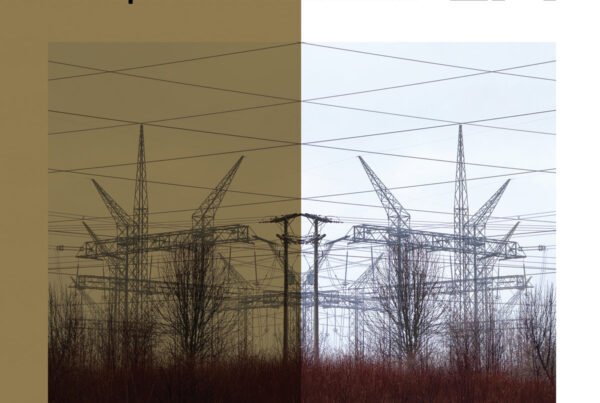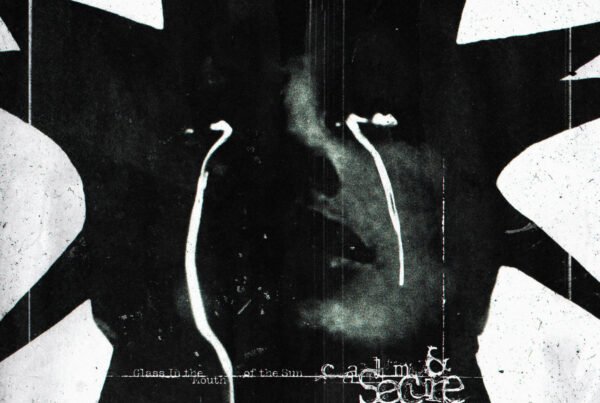Stephen Taranto is bristling with energy and virtuous aural displays on his debut. Permanence is a firm start, albeit one that isn’t properly crystallized.
Release date: March 22, 2019 | Independent | Facebook | Bandcamp
Australia has absolutely no shortage of amazing progressive groups and musicians. Hailing from there, Stephen Taranto is one of the guitarists in The Helix Nebula, a Sydney-based instrumental progressive metal band. Permanence is Stephen’s debut album and will be released fairly soon on his Bandcamp. Whoever enjoyed The Helix Nebula‘s Meridian will definitely have a great time passing through Permanence.
Permanence clocks in at precisely thirty minutes, making it a short ride. It is fairly dense for its length (which only makes sense) and while its strength lies in its engaging and bright exhibition, it compensates with a lot of chugs to bridge the gap between light and heavy. There doesn’t seem to be any clear line between the songs, they all kind of melt together giving the impression of one big segmented song. The album is stoutly driven by flourishing and fluid guitar work which is paired with ambiental keyboards and other effects. The drumming doesn’t stand out in any particular way. It aptly holds together the bedrock of the album, while offering nothing else, and the same goes for the bass work. This isn’t unusual though, most instrumental progressive metal bands rarely drive their sound with more than their guitar. It would’ve been nice, however, to catch a break from this particular mold.
There are a few memorable bits scattered across, in spite of the fact that no one song manages to stand out particularly. The presentation and sound scheme of the record easily overshadow the songwriting. That’s not to say that the songwriting is bad in any way, but it feels like there’s a sense of identity that is yet to be achieved in a proper, fleshed out manner. Permanence kind of sounds like Meridian if there would’ve been more djenty tinges and a Plini-esque vibe. The album doesn’t feel like it has a narrative flow either, even though it feels like a nice ethereal journey. There’s a lot of back and forth between a lot of guitar doodling, chugs, and ambient breaks. This is also the quality that makes it engaging.
The production is very well polished, maybe too polished. The tones are tight, crisp, bright, and well articulated. Fidelity is great, there is plenty of space between each instrument’s voice. The layering feels a tad linear, maybe less compression would be welcome. Otherwise there isn’t much to underline in this aspect. Performance wise, there is quite simply only praise. Stephen Taranto shows off a great deal of technical prowess without becoming overly indulgent.
All in all, in spite of some minor shortcomings, Permanence is a solid album. There are very few artists that manage find their identity around their first release, so maybe we’ll have to wait a little longer for Stephen Taranto to completely bloom. Permanence among other things really fills the void of no new The Helix Nebula material, so that’s something to consider as well. Fans of instrumental prog can definitely get a hearty pile of kicks out of this record and maybe even others can do so.







I know this article is rather old by now but I am truly trying to figure out two things. I know there was a lot of praise in this article, but there are definitely some undertones of “it’s not as dope as I wish it was” in the writing here.
Two questions though,
1. Why do me and my older brother LOVE this album? I’m not even a Taranto fanboy, in fact I don’t love Helix nor Stephen’s other stuff. But this album shreds hard and I really dig playing it.
2. Why do artists push for the more compressed & tight sound that I hear so many “true metal heads” or whatever get frustrated with? If these artists (Erra, Volumes, Taranto, Plini maybe, etc) have a history with more raw, sloshy sounds, why do they fight for more tight & compressed sounds (that I still find very rich in vibe for the record)? Is it just a bunch of artists feeling like they have to keep up with the likes of the Pop or Hip Hop genres, or is it an actual search for tight sound that allows for a bit more punch and translation, a step away from the natural mud / convolution of say your wrist hitting the strings of the guitar or the amp fuzz slightly affecting the noise floor, etc? (as opposed to say the Axe-FX chopped-off/gated capabilities for guitar chugs especially)?
Anyway hope I’m not coming across really critical. I just keep having conversations both online and in real life with people who enjoyed “harder” music, be it metalcore etc, who simply do NOT enjoy any of the progressive music that my brother and I like. In fact I can’t even think of a single person I know who also loves this style of music, yet it’s being pushed for by the artists themselves, who wrote the original hits that these “metalcore lovers” grew up on.
Call from the past, but here we are. Let me try to answer your question:
1) No idea, you figure that out.
2) Primarily, but not exclusively, Misha Mansoor/Bulb set a tone for how this kind of djenty/modern prog stuff has to sound like, and almost everyone who had the abilities to more or less properly produce their own music tried to mimic the sounds which made Periphery a household name for a while. The whole djent trend and the level it influenced metalcore and prog at that time was so much about tone, so whatever influenced people like Stephen Taranto and others, they followed the blueprint on how this music has to sound and only made minor alterations.